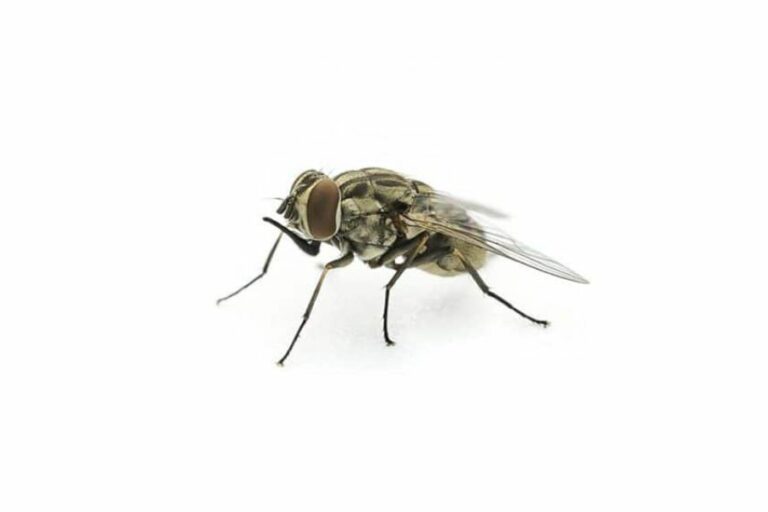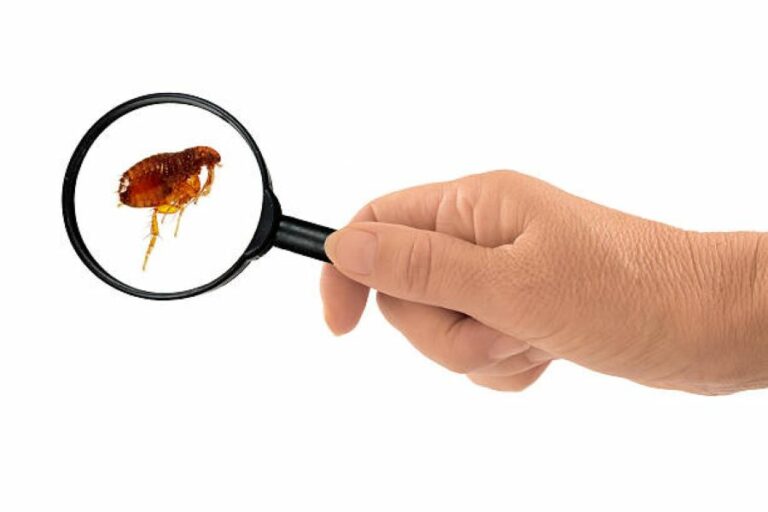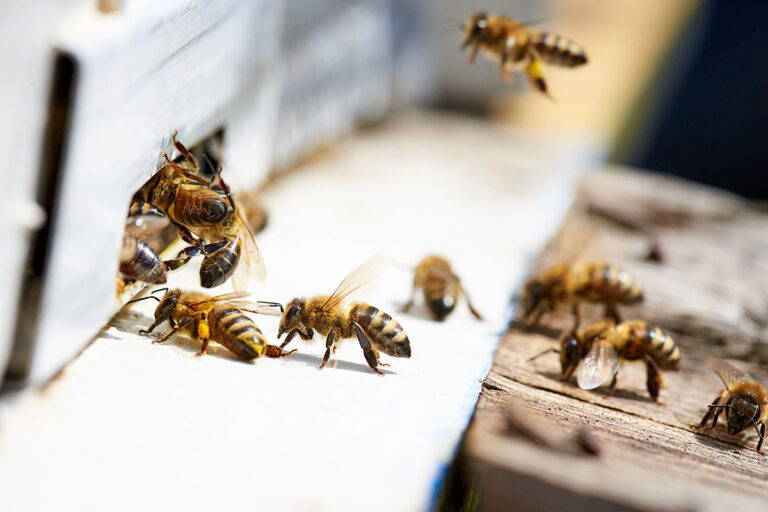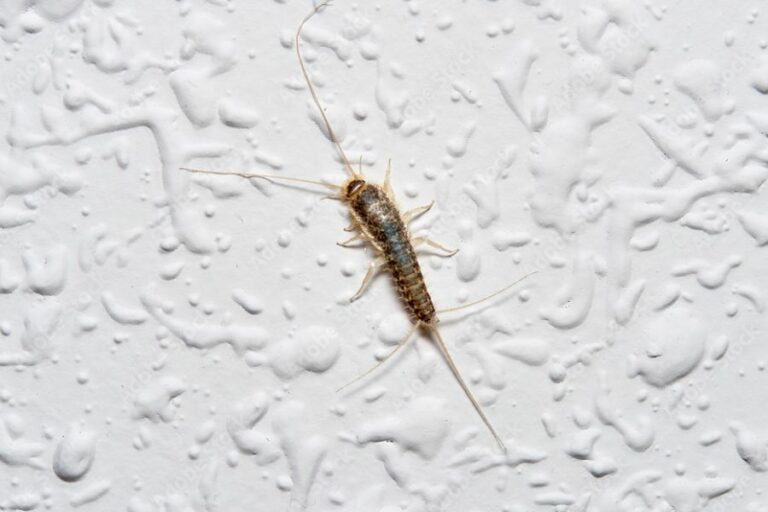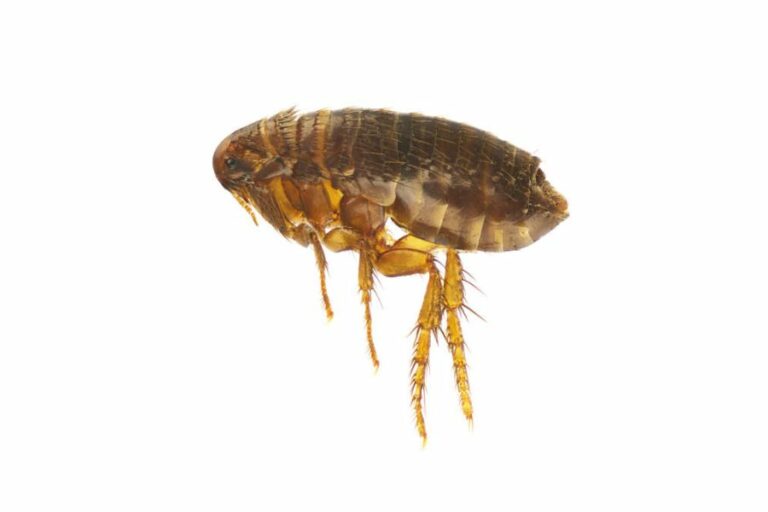Untreated Wasp Nest Risks
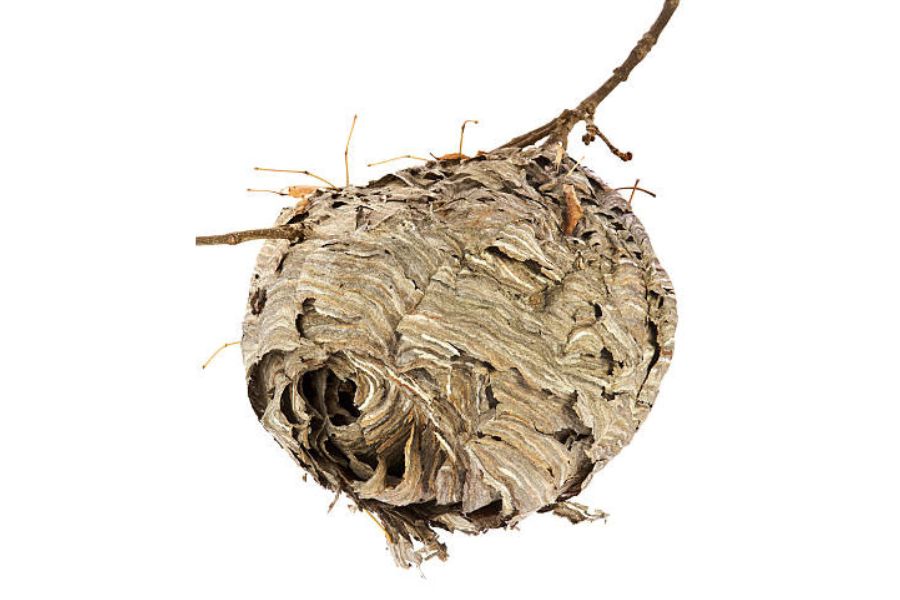
Wasps: What are the risks associated with leaving a wasp nest untreated?
In this article we explore the untreated wasp nest risks you face if you don’t act swiftly when you find a wasp nest. We provide expert insight and effective solutions. Neglecting a nest poses health hazards from severe allergic reactions, property damage, and ecosystem disruption due to unbalanced pest populations. Join us to learn how to address these risks and safeguard your well-being, property, and the environment.
What are some potential health risks associated with leaving a wasp nest untreated?
Firstly, wasps are known for their aggressive nature and can sting multiple times. Their stings are painful and can result in severe allergic reactions, including anaphylaxis, a life-threatening condition. People allergic to wasp stings should take extra precautions, as they are at a higher risk of experiencing a severe reaction that can lead to hospitalisation.
Moreover, wasp nests can become breeding grounds for other pests and insects, such as cockroaches, ants, and flies. These pests can carry diseases and bacteria, spreading to your home and potentially making you ill. Additionally, wasp nests can attract other predators, such as birds and small animals, which may carry diseases, exposing you to additional health risks.
Another issue that arises from leaving a wasp nest untreated is the risk of property damage. Wasp nests can cause structural damage to buildings, as they can chew through wood and plaster. This damage can weaken the structure of your home and potentially lead to costly repairs. Furthermore, leaving a wasp nest untreated can affect your mental health, creating constant anxiety and fear. You may be unable to relax in your home, leading to sleep disturbances, irritability, and even depression.
Addressing wasp nests as soon as you notice them is essential to minimise health risks. You can do this by calling a professional pest control service or taking preventive measures, such as sealing cracks and holes in your home’s exterior. Additionally, wearing protective clothing and using insect repellent when you’re outside can also help reduce the risk of wasp stings.
What risks are associated with removing a wasp nest on your own?
Initially, it’s vital to understand that wasps can be highly territorial. If they feel threatened or disturbed, they will become aggressive and will not hesitate to sting. They can be especially dangerous if you are allergic to wasp stings. Anaphylaxis, a severe and potentially life-threatening allergic reaction, can occur in some people allergic to wasp venom. Attempting to remove a wasp nest on your own puts you at risk of getting stung and potentially having a severe reaction.
An additional risk associated with attempting to remove a wasp nest on your own is the possibility of disturbing the nest and causing the wasps to swarm. If the nest is concerned, the wasps will defend their home aggressively, and they can attack in large numbers. Due to this, it can be extremely dangerous, especially if you need more preparation for it. If you are stung multiple times, it can cause intense pain, swelling, and even anaphylaxis in severe cases.
Even if you successfully remove the nest, there’s a risk that some of the wasps will escape and build a new nest somewhere else on your property. Consequently, a re-infestation can be highly frustrating. Professional pest control companies use special techniques to ensure that all the wasps are eliminated and that the risk of re-infestation is minimised.
Accumulatively, the risks to your health, attempting to remove a wasp nest on your own can also be dangerous for your property. If you use the wrong methods or products, you can damage your property and cause costly repairs. For example, using fire to destroy a wasp nest can be extremely dangerous, and it can cause a fire to spread quickly. Using chemical sprays can also be hazardous, especially if you are unfamiliar with the product and its proper use.
How can professional services help reduce the risks of leaving the nest untreated?
A wasp nest on your property can be a real cause for concern. These stinging insects are known for their aggressive behaviour and can pose a significant danger to you and your family. Leaving a wasp nest untreated can lead to many risks, including painful stings, potential allergic reactions, and property damage.
Professional wasp nest removal services are essential for ensuring the wasp nest is safely and effectively removed. Attempting to remove a wasp nest on your own can be extremely dangerous, as wasps can be territorial and aggressive if they feel threatened. Professional pest control companies have the necessary knowledge and experience to remove the nest safely, minimising the risk of getting stung.
One of the main benefits of using professional wasp nest removal services is the reduction of health risks. Wasps can be extremely dangerous, especially for those allergic to their venom. Attempting to remove a wasp nest on your own can increase your risk of getting stung, potentially leading to severe allergic reactions. Professional pest control companies have the necessary equipment and expertise to remove the nest without putting you and your family at risk.
Another advantage of professional wasp nest removal services is preventing property damage. Wasps can build their nests in various locations, including eaves, roofs, and attics. Professional pest control companies have the expertise to remove the nest without causing damage to your property. Attempting to remove a nest without professional help can cause damage to your property, potentially leading to costly repairs.
Professional wasp nest removal services also offer the advantage of long-term prevention. Once the nest is removed, pest control companies can provide additional benefits to help prevent future infestations. They can identify areas of your property prone to infestations and provide treatment to deter wasps from building new nests.
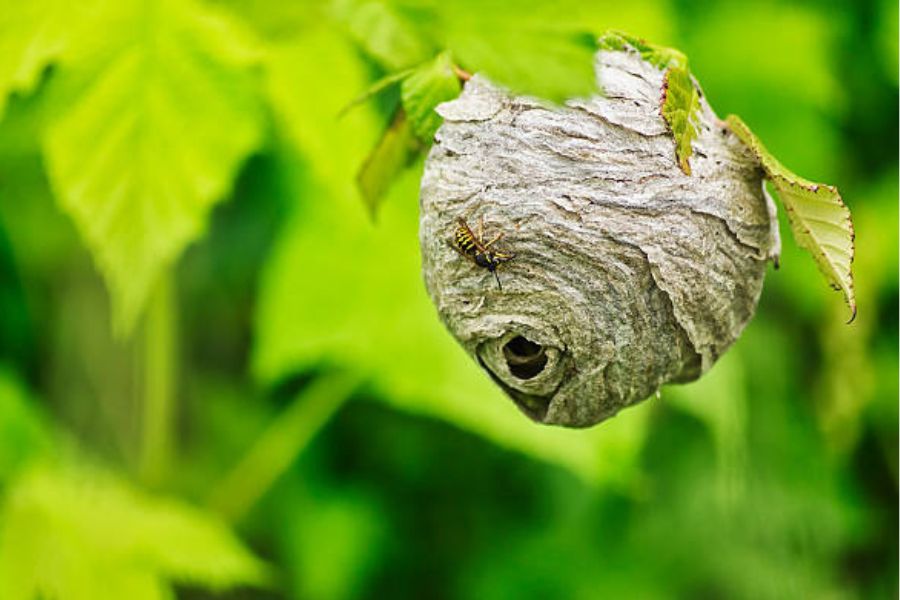
Can wasps cause damage to property if their nest is left untreated?
One of the most significant ways wasps can cause property damage is by building their nests in or around your home. Wasp nests are typically made of wood fibre and saliva, which can cause structural damage to your property. The longer the nest is left untreated, the larger it will grow and the more damage it can cause to your home’s structure.
Furthermore, wasp nests can attract other pests, such as ants and flies, leading to further property damage. These pests can cause additional harm to your property by chewing through wood, wiring, and other materials. Sometimes, these pests can even pose a fire hazard if they damage electrical wiring.
In addition to the above, issues that arises from leaving a wasp nest untreated is the potential for secondary infestations. Wasp nests can attract other predators, such as birds and small animals that may carry diseases and cause additional property damage. Sometimes, these predators may even try to make their nests on or near the wasp nest, leading to further structural damage to your home.
Addressing wasp nests as soon as you notice them is essential to minimise property damage. You can do this by calling a professional pest control service or taking preventive measures, such as sealing cracks and holes in your home’s exterior. Additionally, trimming trees and shrubs around your home can help reduce the risk of wasp nests being built near your property.
Are there any legal or environmental risks associated with leaving a wasp nest untreated?
If someone gets stung by a wasp on your property, you could be liable for any injuries or damages. From a legal perspective, leaving a wasp nest untreated can be problematic if the wasps threaten others. It’s essential to remove the nest to prevent potential legal issues promptly.
From an environmental perspective, wasps play a paramount role in the ecosystem. They help control the population of other insects and pests, such as mosquitoes and caterpillars. However, if the wasp nest is in an area that threatens human safety, it may need to be removed. In some cases, the removal process can harm the environment, such as using pesticides to kill the wasps.
Suppose you’re concerned about the legal and environmental risks of removing a wasp nest. In that case, it’s crucial to seek the help of a professional pest control company. They can safely remove the nest while minimising any impact on the environment. In some cases, they may even be able to relocate the nest to a safer location.
How can you tell if a wasp nest is active, and what are the risks of leaving an active nest untreated?
Wasp nests can attract pests such as ants, cockroaches, and spiders. These pests are attracted to the protein-rich insects that the wasps feed on and the sugary secretions that the wasps produce. Once these pests are attracted to the area, they can become a nuisance and potentially cause damage to your property.
Leaving a wasp nest untreated can also increase the risk of pest infestations. Suppose the wasp nest is near your home or business. In that case, the wasps may venture inside looking for food and shelter, leading to more pests finding their way inside, which can be a significant problem if they start to breed and multiply.
Also, suppose you attempt to remove the wasp nest on your own. In that case, you may inadvertently disturb other nesting pests. Therefore, this can cause them to scatter and spread throughout your property, increasing the risk of a full-blown pest infestation.
Can wasp nests attract other pests, and what are the risks of leaving the nest untreated to pest infestations?
Wasp nests can be a magnet for other pests like ants, flies, and spiders. These pests are attracted to the same sources of food that wasps feed on, including insects and sugary nectar. Once attracted to the area, they can quickly establish their nests and multiply, causing a severe pest infestation.
Leaving a wasp nest untreated can also lead to other problems. If the nest is near your home, the wasps may venture inside looking for food and shelter. Doing so creates openings for other pests to find their way in and cause damage to your property. For instance, if rats or mice find a way inside, they can chew on electrical wires, insulation, and other building materials.
Moreover, wasp nests are a potential threat to your health and safety. They can be aggressive and sting you repeatedly if they feel threatened. Attempting to remove a nest on your own can put you at risk of being stung and experiencing severe allergic reactions.
How can leaving a wasp nest untreated affect the overall population of wasps in the area?
Primarily, it’s essential to understand that wasps play a critical role in our ecosystem. They are natural predators, and they help control the populations of other insects that can harm crops and gardens. Wasps are also important pollinators, and they help to spread pollen from plant to plant, which allows them to reproduce. So, when you leave a wasp nest untreated, you’re not just putting yourself and your family at risk. Still, you’re also endangering the local wasp population.
One of the most significant risks of leaving a wasp nest untreated is that it can lead to a larger population of wasps in the area. When a nest is undisturbed, it can grow and expand, eventually becoming a much larger colony. This nest can be dangerous for anyone who lives nearby, as the wasps will become more aggressive and territorial as their numbers grow. If the wasp population becomes too large, it can even lead to a full-scale infestation, which can be challenging to control.
One more reason why it’s essential to take care of wasp nests is because they can attract other pests and insects to your property. Wasps are known to feed on other insects, such as caterpillars and aphids, and they will often bring these insects back to their nest to feed their young. This activity can lead to an increase in the population of other pests, which can be harmful to your plants and gardens. Taking care of the wasp nest can help prevent these other pests from taking over your property.
Leaving a wasp nest untreated can also impact the local ecosystem. As we mentioned earlier, wasps are essential pollinators, and they play a critical role in the reproduction of many plant species. If the local wasp population begins to decline, it can have a ripple effect on the entire ecosystem. This decline can decrease the population of other insects, impacting the food chain and the ecosystem’s overall health.
If you have a wasp nest problem, contact us for professional advice or read about our wasp removal services.
